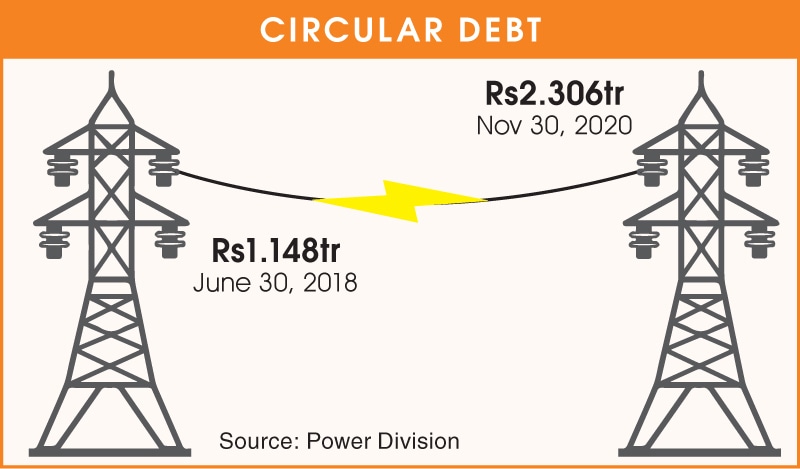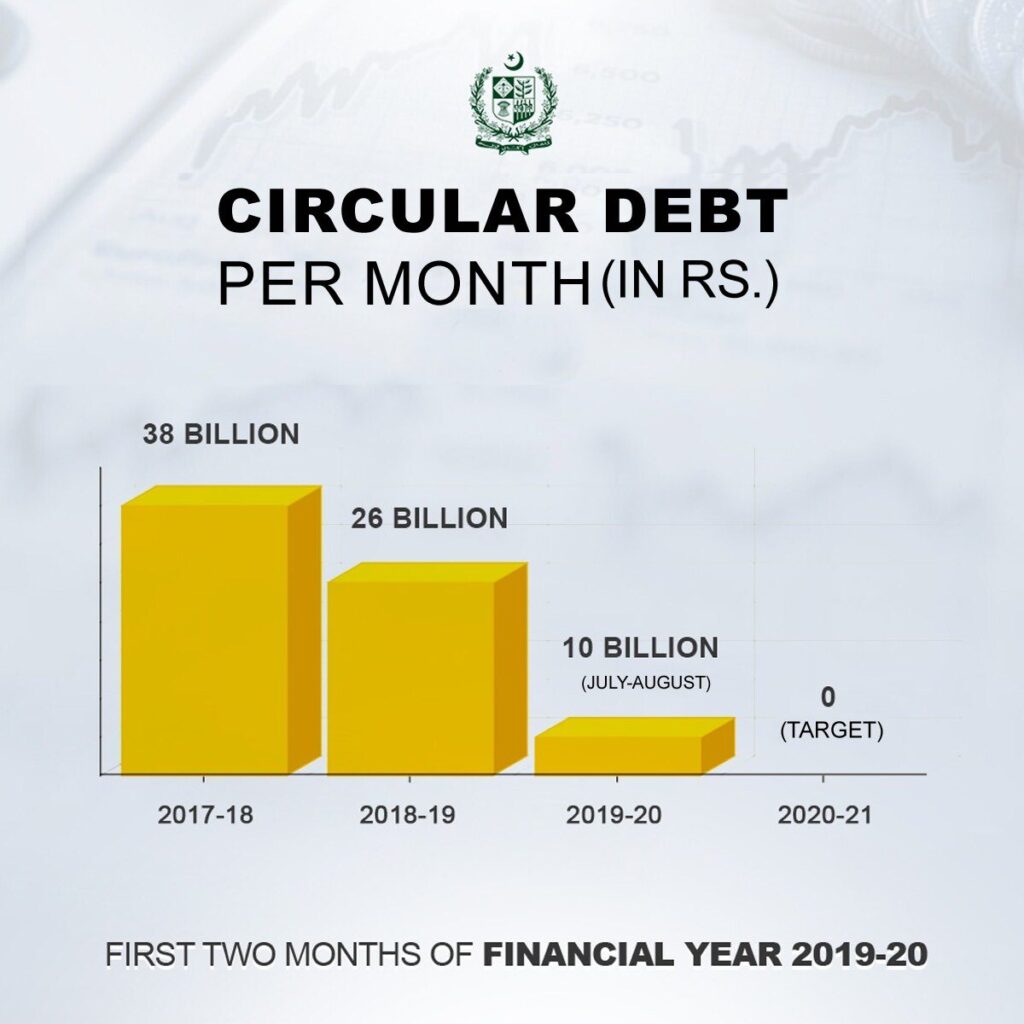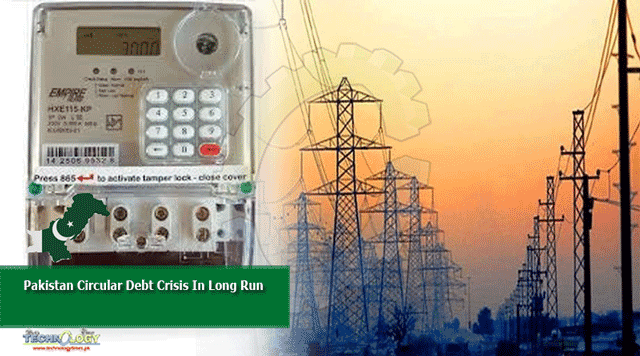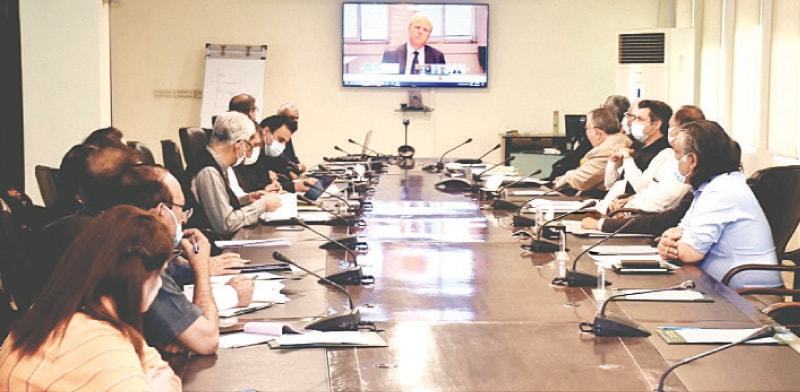ISLAMABAD: Pakistan on Tuesday shared with the World Bank a revised outline of the Circular Debt Management Plan that seeks rationalisation of taxes, negotiated takeover of old independent power plants (IPPs) and closure of all old public sector plants to increase electricity tariffs, but slightly lower than that committed with the lenders under the IMF programme.
This was the takeaway of a virtual meeting newly appointed federal Minister for Finance and Revenue Shaukat Tarin-led team of economic ministers and officials had with Managing Director (Operations) of the World Bank Axel van Trotsenburg. Federal Minister for Economic Affairs Omar Ayub Khan, Minister for Power Hammad Azhar, Special Assistant to the Prime Minister on Power Tabish Gauhar, SAPM on Revenue Dr Waqar Masood, the secretaries of finance, power and economic affairs divisions, Federal Board of Revenue chairman and State Bank of Pakistan governor attended the meeting.

An official statement said the new energy minister briefed the World Bank MD about the efforts underway in the energy sector for bringing efficiency into the system by eliminating inefficient power plants to improve service delivery.
An official said this meant the government’s 3500MW power plants would be completely shut down in about 18 months, half of which have already been closed. Secondly, the old power plants in private sector would be taken over through the financial products to get out of their take or pay obligations as capacity charges in consumer tariff.
Plan includes rationalisation of taxes, takeover of old IPPs & closure of all old public sector plants to increase power tariffs
The statement said Tabish Gauhar highlighted the reforms introduced in the power sector to make it dynamic and sustainable. He reiterated the government’s resolve to achieve efficiency in production and transmission of electricity.

The World Bank MD was told that the government also planned to rationalise general sales tax on electricity sales to create a saving of about Rs85-100 billion for power companies and ultimately consumers by removing input differential. This means the tax collection would be on the pattern of IPPs and not on the basis of deemed sales, a significant part of which remains un-recovered.
It was explained that sales tax on electricity supplied by power plants amounted to about Rs100bn but for almost the same energy the end consumers paid almost the double, which should be streamlined.
Similar rationalisation will also be applied on various taxes applicable on fuel component of tariff. This would reduce the FBR revenue but provide a big cushion of about 85 paisa or Re1 per unit relief in electricity bills when compared to the commitment of Rs5.36 per unit increase.
An official said the revised Circular Debt Management Plan had been referred to the cabinet for approval on Tuesday but could not be taken up for unrelated political reasons.
The plan also includes changes in the debt tenures of the new power plants for savings through debt restructuring.
Government officials argue that the drastic and very difficult steps have already been taken over the past two years, including tariff increases, surrendering government rights to Nepra on tariff notifications, closure of old power plants and absorption of pension liabilities of the power plants. Further tariff increases in quick succession would negatively affect electricity demand. Therefore, some breathing space is required as paying capacity of consumers has been lost. The economy cannot afford further immediate tariff increase amid the third wave of Covid-19.
Mr Tarin appreciated the World Bank for always being a source of support in pursuing reform agenda and implementing various development projects in Pakistan. He acknowledged the longstanding partnership and firm commitment of the World Bank as a major development partner for bringing essential reforms in priority areas, including energy, fiscal and debt management and socio-economic development.
The finance minister also shared an overview of the current economic situation and outlined several initiatives taken to accelerate economic recovery during Covid-19 pandemic, the statement said, adding that Pakistan had converted current account deficit into surplus by adhering to a strict financial discipline.
Mr Tarin also highlighted measures to be taken for effective resource mobilisation, enhancing productivity and strengthening financial management in future. He reiterated the firm commitment of the government in undertaking reforms to achieve macroeconomic stability, build fiscal resilience and stimulate economic recovery amid the pandemic and in post-pandemic scenario.

The economic affairs minister updated the World Bank MD on steps being taken to build resilient institutions and investment in human capital.
The World Bank MD reiterated support for overcoming challenges in the energy sector and lauded the socio-economic coverage extended to the marginalised sections of the society during coronavirus pandemic. He reaffirmed the Bank’s commitment to continue support for implementation of structural reforms in future, the statement said.










